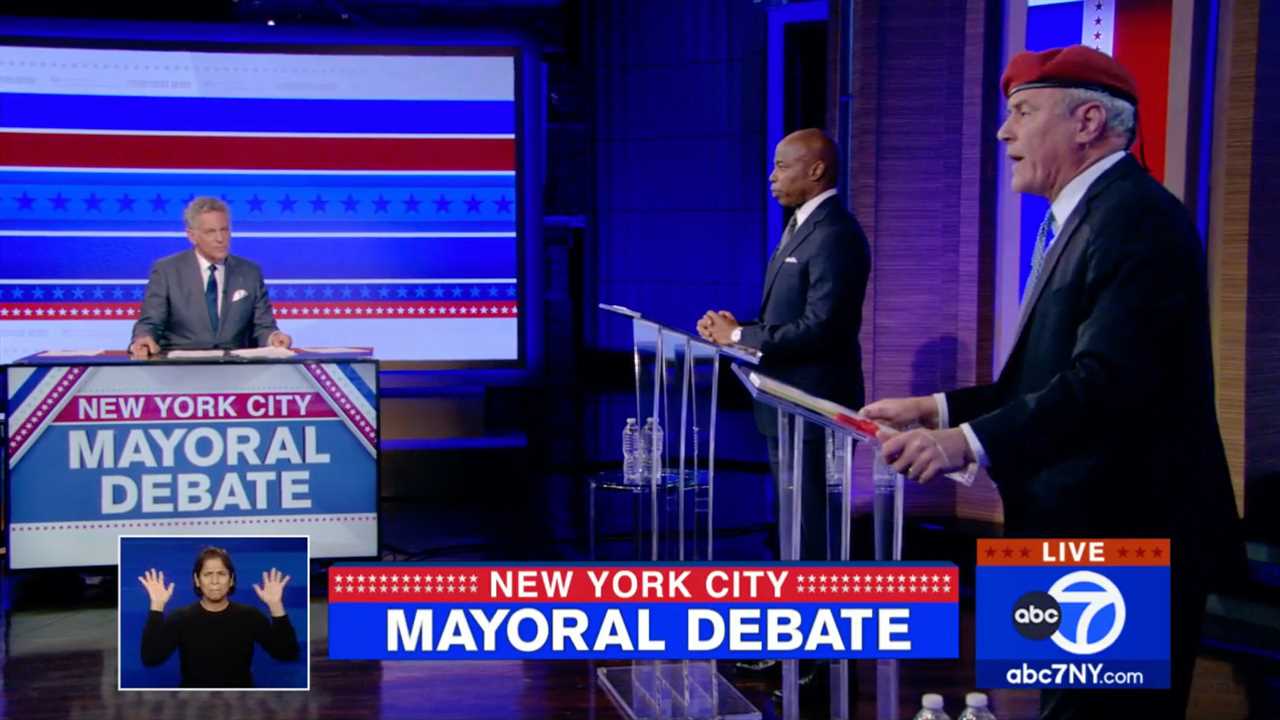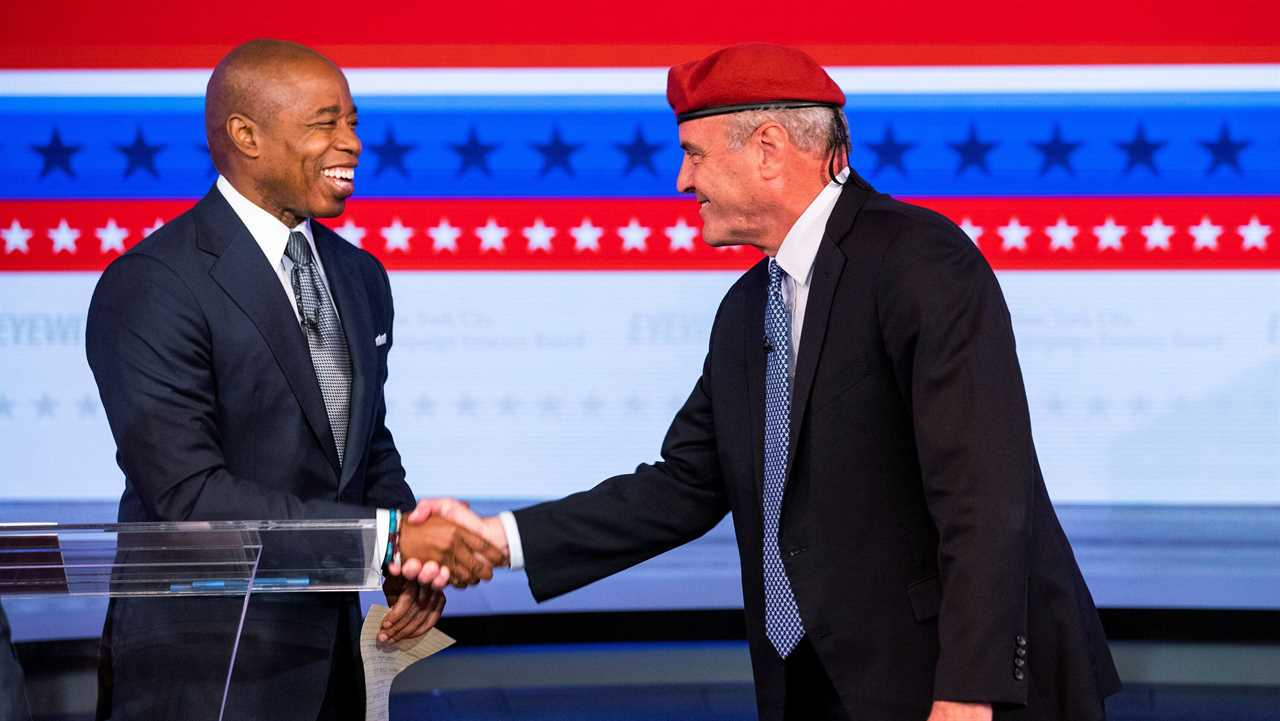
The final debate in the New York City mayor’s race devolved into a chaotic contest Tuesday night marked by name-calling, lecturing, personal remarks and even profanity as the long-shot Republican candidate, Curtis Sliwa, sought to knock Eric Adams, the Democratic nominee, off-kilter at every turn.
Mr. Sliwa faces extraordinarily difficult odds against Mr. Adams, and for much of the campaign, Mr. Adams has cast himself as a mayor-in-waiting who is already preparing to govern the nation’s largest city, ignoring Mr. Sliwa’s efforts to coax him into confrontation.
But on Tuesday, the candidates did clash at times, and Mr. Sliwa spent much of the debate hectoring and interrupting Mr. Adams, and occasionally jolting him out of the rise-above-it-all demeanor that he deployed during their first debate last week. Mr. Adams lashed Mr. Sliwa for faking crimes and even over his record on child support.
“That is scurrilous,” Mr. Sliwa protested.
The two candidates staked out starkly different positions on matters from vaccine mandates to congestion pricing to outdoor dining, while finding common ground on some education and public safety issues.
Still, the personal and political divide between the nominees was repeatedly thrown into sharp relief for viewers who tuned in one week before Election Day.
Here are five takeaways from the debate:
Mr. Sliwa needed an election-altering moment. He didn’t get one.
Given New York City’s overwhelmingly Democratic tilt, any Republican nominee would face a steep climb in a mayoral contest. But Mr. Sliwa, whom Mr. Adams has referred to as a “clown,” may face an especially hard challenge.
He has admitted, as Mr. Adams noted repeatedly, to faking crimes for publicity when he was younger. He is perhaps as well-known these days for owning more than a dozen cats as he is for any sweeping vision for the city. And while Mr. Sliwa has tried to make public safety a signature issue that galvanizes voters, that effort is complicated by Mr. Adams’s background as a former police officer.
Taken together, Mr. Sliwa needed something of a miracle to change the seeming trajectory of the race — and he did not appear to get one. He did seem to catch Mr. Adams off guard at times, opening the debate by forcefully questioning Mr. Adams about interactions with gang members, which sent Mr. Adams veering into attack mode himself.
But if Mr. Sliwa sought to produce any damaging new information about Mr. Adams that would make many voters seriously reconsider their choices, it was not immediately clear what that would be, since he pushed many familiar lines of attack.
And as the debate wore on, Mr. Adams returned to his posture of ignoring Mr. Sliwa, looking at the camera instead of at his opponent, skipping opportunities to question or engage Mr. Sliwa, and insisting that his focus was on the voters of New York City.
The two men clashed over one of the city’s biggest crises: homelessness.
Homelessness is one of the most pressing issues that the next mayor will face.
There were nearly 48,000 homeless people, including almost 15,000 children, sleeping in the city’s shelter system every night in August, according to the Coalition for the Homeless.
The overall figure for August also included 18,357 single adults, close to a record.
Asked how they would tackle the homeless issue, Mr. Sliwa skirted the question and instead attacked Mr. Adams and his relationship with Mayor Bill de Blasio.
The single adult population in homeless shelters has increased 60 percent since Mr. de Blasio took office in 2014. The mayor has cited homelessness as one of the issues he has struggled with the most during his two terms.
“We’ve been out in the streets tending to their needs, getting them food and clothing, these lost souls,” Mr. Sliwa said before quickly pivoting to criticizing Mr. de Blasio and his social services commissioner, whom Mr. Adams has praised.
“I would like you, Eric Adams, to condemn your partner and your teammate Bill de Blasio,” Mr. Sliwa said.
Mr. Adams ignored Mr. Sliwa’s remark, calling homelessness a “real issue” before laying out a more detailed proposal.
Mr. Adams talked about his plan to turn 25,000 underused hotels rooms in the boroughs outside of Manhattan into permanent single-room occupancy housing for the homeless. Many hotels outside the main tourist and business districts in Manhattan were “built to be shelters,” Mr. Adams said.







